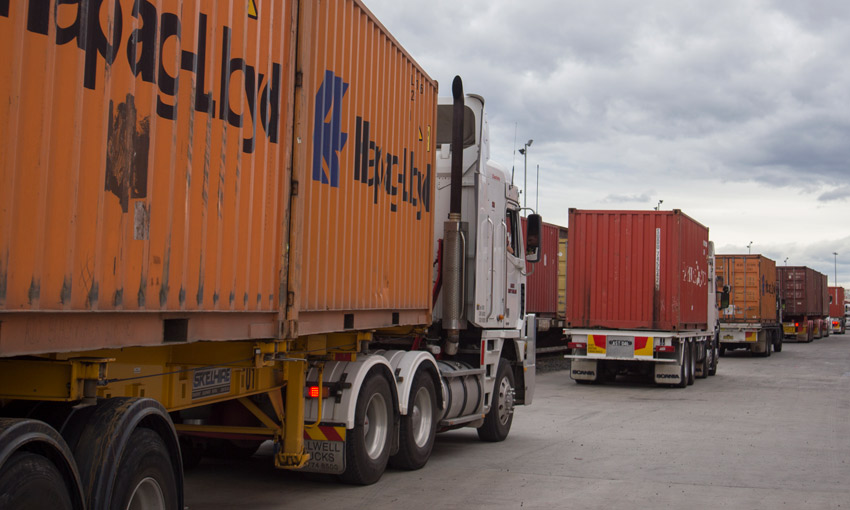THE Victorian government has backed an initiative to enhance productivity in the truck arrival interface at empty container parks, and the plan involves participation from shipping lines.
The ECP Paperless Truck Entry Trial was proposed by Container Transport Alliance Australia and launched by Melissa Horne, Victorian minister for ports and freight, at a ministerial breakfast last week and at Shipping Australia’s luncheon in Melbourne.
CTAA, with support from Freight Victoria and the minister’s office, plans to work collaboratively with empty container parks, shipping lines and container road transport operators to measure truck turnaround times at all ECPs in Melbourne.
It plans to encourage implementation of process changes and technology adoption to ensure truck entry can become paperless.
According to CTAA, manual gate entry procedures and low or inconsistent use of electronic delivery orders in ECP booking platforms place an administrative burden on transport operators, increase the risk of double handling containers and increase truck turnaround times.
CTAA’s conservative estimations suggest improving truck turn times at empty container parks by 10 minutes would save the container transport industry up to $20 million each year in truck running costs.
CTAA director Neil Chambers said several ECPs in Melbourne have implemented camera technology and process changes to enable the remote identification of truck arrivals.
He said the ECPs are then able to match those trucks against arrival notifications visible through technology platforms such as Containerchain or 1-Stop Modal.
“At these benchmark ECPs, trucks can be ‘green-laned’ for direct allocation to the fork area for loading or unloading of empty containers,” Mr Chambers said.
He observed that these ECPs achieve best practice truck turnaround times and hassle-free gate entry processes.
“Unfortunately, there are other ECPs where these step changes in gate-in productivity have not been implemented, meaning that truck drivers must exit the truck cab to speak to ECP operations staff about their arrival.
“This wastes valuable time and raises added concerns about the occupational health and safety implications of truck drivers walking around within the facility, mixing with trucks and other equipment.”
The success of the initiative will rely in part on all container shipping lines servicing Port of Melbourne providing electronic information exchange on the return location for every empty import container, ideally directly to the ECP’s depot management and booking platform.
Mr Chambers said if shipping lines do not provide this information, transport companies and ECPs will receive additional administrative burdens causing “massive” landside logistics delays and added costs.
“The majority of the foreign container shipping lines provide this EDI exchange most of the time,” Mr Chambers said.
“However, there are some prominent shipping lines that do not, and this is of ongoing concern.”
In addition to several expected advantages for transport operators and ECPs, CTAA said the initiative offers benefits for the broader freight community and the state.
Anticipated benefits include a more efficient container management chain in Melbourne, greater visibility of supply chain performance indicators, and reductions in the number of heavy vehicles required to perform the given freight task and in the number of “empty running” truck journeys.
CTAA said Freight Victoria is already working with ECPs and booking system providers to develop performance indicators for the empty container supply chain, which will be instrumental in measuring the trial’s success.
Ms Horne said addressing issues raised by members of the industry would enhance support for freight operators, exporters and producers and strengthen supply chain capability.
“We’re continuing to work with the freight and logistics industry to keep the supply chain moving – not only now, but well into the future,” she said.
The ECP Paperless Truck Entry Trial is scheduled to commence in September this year and to continue into the first quarter of 2023.





